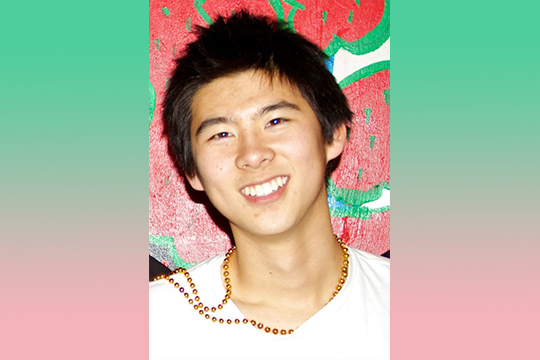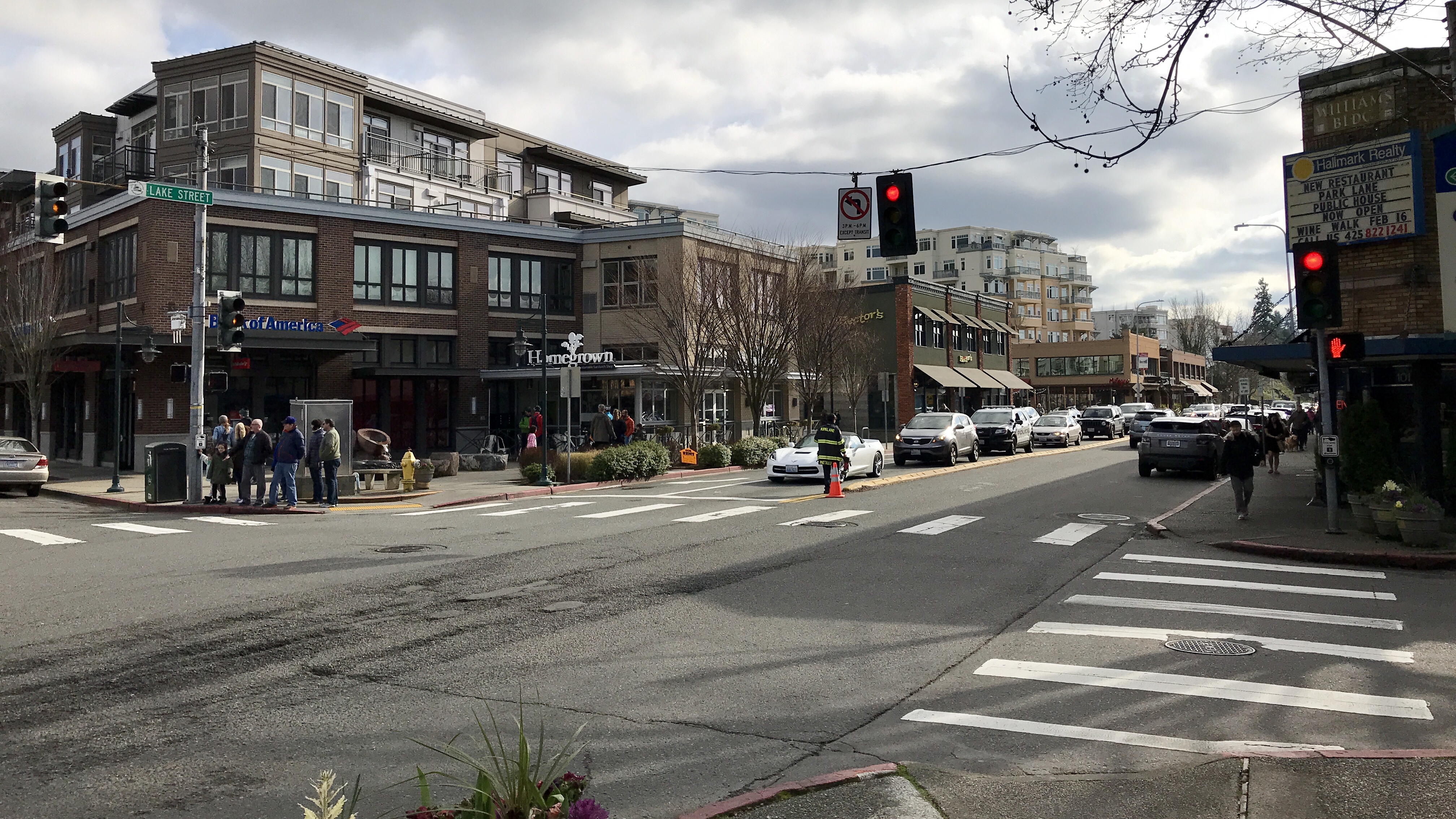
Downtown Kirkland, WA, where Neal is on the Community Council.
By Neal Black, ’94 (Civil/Environmental Engineering)
How small is a mustard seed, exactly?
I’m asking myself this from the dais of council chambers at the first council meeting after being sworn in. My decision to run for local office last November was inspired, in part, by my former Stanford classmate, now Senator, Cory Booker, who has instructed college graduates to “Stay faithful in things large and taking on the world, but stay faithful in those things small – because remember it’s the small things, the size of a mustard seed, that ultimately moves mountains.” As I work through tonight’s agenda, I’m wondering: When Cory thinks of a mustard seed, just how small a seed does he picture?
Tonight’s council agenda consists of a proposal to allow temporary signs on city right-of-ways (picture an A-frame sandwich board along the curb) and a proposal to up-zone four city blocks from two stories to five stories. Compared to things large, these seeds are tiny.
But wait. The community speaks, and I listen. I learn that A-frame sandwich boards are a matter of economic fairness and inclusiveness for some small business owners who can’t afford high-rent space along the main thoroughfare, some of whom are immigrants, older entrepreneurs, or just starting out. And those three extra floors? If done correctly, they’re a small part of a regional solution to affordable housing—a crisis here in the Seattle area.
Mustard seeds are tiny indeed. (I know. I Googled it.) But running for local office and working with like-minded neighbors to make small improvements to the city, ultimately, improves people’s lives.
 Neal began as a tutor for the Ravenswood-Stanford Tutoring Program (RSTP), working with students in East Palo Alto and Redwood City. He was a tutor coordinator in RSTP for two years. Neal was also a Stanford in Government fellow, interning at the Natural Resources Committee of the California State Assembly, and he attended Stanford in Washington, where he interned in the White House Office on Environmental Policy. Now a lawyer in Seattle, he has incorporated service to his community into his career and family life. He is the chair of the King County Bar Association’s Public Policy Committee, and, in November 2017, he was elected to the Houghton Community Council in Kirkland, Washington.
Neal began as a tutor for the Ravenswood-Stanford Tutoring Program (RSTP), working with students in East Palo Alto and Redwood City. He was a tutor coordinator in RSTP for two years. Neal was also a Stanford in Government fellow, interning at the Natural Resources Committee of the California State Assembly, and he attended Stanford in Washington, where he interned in the White House Office on Environmental Policy. Now a lawyer in Seattle, he has incorporated service to his community into his career and family life. He is the chair of the King County Bar Association’s Public Policy Committee, and, in November 2017, he was elected to the Houghton Community Council in Kirkland, Washington.
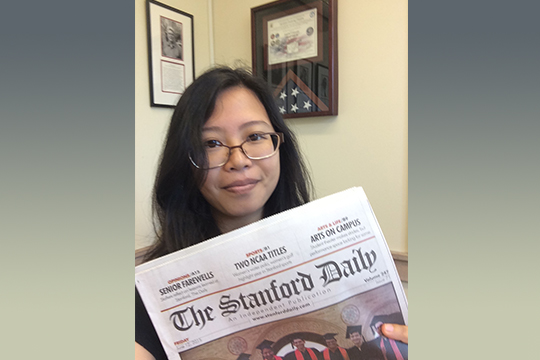
Catherine also wrote for the Stanford Daily throughout her time at Stanford.
By Catherine Zaw, ’15 (Biology, Linguistics)
When I signed up to volunteer for a homeless women’s shelter in the winter of 2013, I anticipated physical work moving mattresses and sleepless nights worrying about the safety of the shelter. What I didn’t expect was the bonds I would form with some of the residents.
Annie had been a waitress in a traditional Italian restaurant before it was replaced by a fast food chain. “I can name all the types of pasta,” she told me. She drew pasta shapes on a scrap of napkin. “The conchiglie is my favorite. It’s like a conch shell. My grandmother used to make it all the time.”
Annie taught me everything she knew after a lifetime working with pasta. In turn, I told her about how the words macaroni, macaroon, and macaron have the same etymological heritage, but are completely different foods now. We traded knowledge and life experiences, and after a whole winter, I was sad to see our shelter time come to an end.
Annie wasn’t the only woman with a story at the shelter. Each visitor came in with her own experience, and the lesson I took was that there is a story in everyone, everything—and that all of these stories are important.
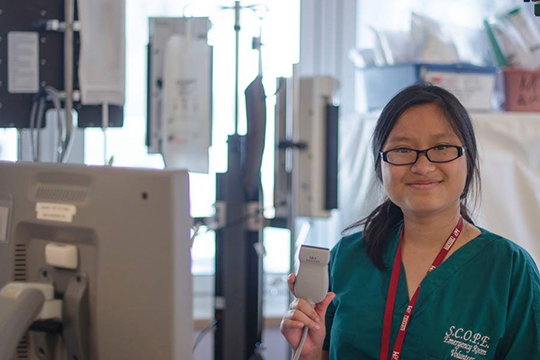
Van at SCVMC
By Van Tran, ’16 (English)
Not many people can say they’ve had the chance to meet a survivor of human trafficking and domestic violence. I still remember the day the paramedics brought Quy* into the emergency room. Her head was tender from where it been bashed, the skin around one eye an angry red that slowly bruised purple. But what I remember most is the blank look in her eyes as the staff at Santa Clara Valley Medical Center (SCVMC) tried to figure out what language she spoke.
Our hospital doesn’t have in-house interpreters on weekend or overnight shifts. That’s where I come in as a volunteer interpreter from SCOPE, a hospital nonprofit that connects Stanford students with opportunities for public service. On some days, I’m the only Vietnamese speaker in the emergency department. By bridging linguistic and cultural barriers, I facilitate healthcare delivery for patients like Quy.
In my three years with SCOPE, I have been blessed with the opportunity to share in the experience of SCVMC patients, many of whom come from underserved communities. In the process of working with these patients to convey their story, I discover new facets of my cultural heritage and emerge reinvigorated in my dedication to public service.
*Alias used to protect patient’s privacy.
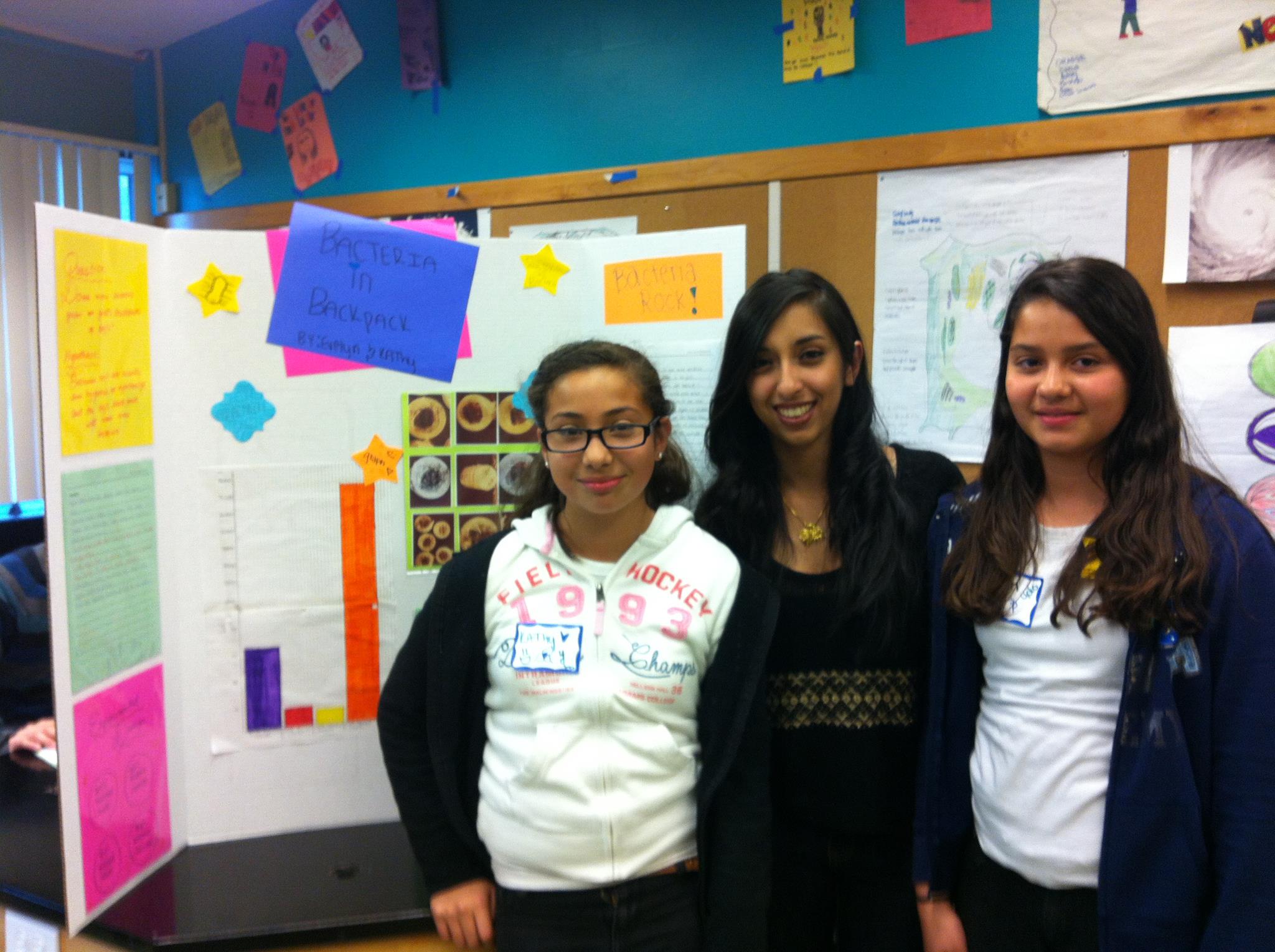
By Ritika Dutta, ’15 (Biology)
In my sophomore year, I worked with two middle school students on a project about bacteria. Neither of the girls seemed very interested in the material and both were constantly distracted. In an effort to make the project fun for them and engage them, I suggested that our project be to take bacteria from both girls’ and boys’ backpacks and compare the types and amount of bacteria in each. Immediately, the girls were excited and enthusiastic – they couldn’t wait to figure out whether boys or girls were “dirtier!”
The project was extremely effective in teaching essential scientific concepts, such as how to develop a hypothesis, design an experiment, and analyze data. As I watched the girls proudly and confidently present the project on the last day, I felt immensely proud at their progress – both girls had told me they were extremely shy and had never been able to speak publicly, but after a lot of practice and confidence-building, they did an amazing job and were able to overcome their fears. I hope that the experience helped them realize that science can be fun and interesting and opened the door for future exploration.
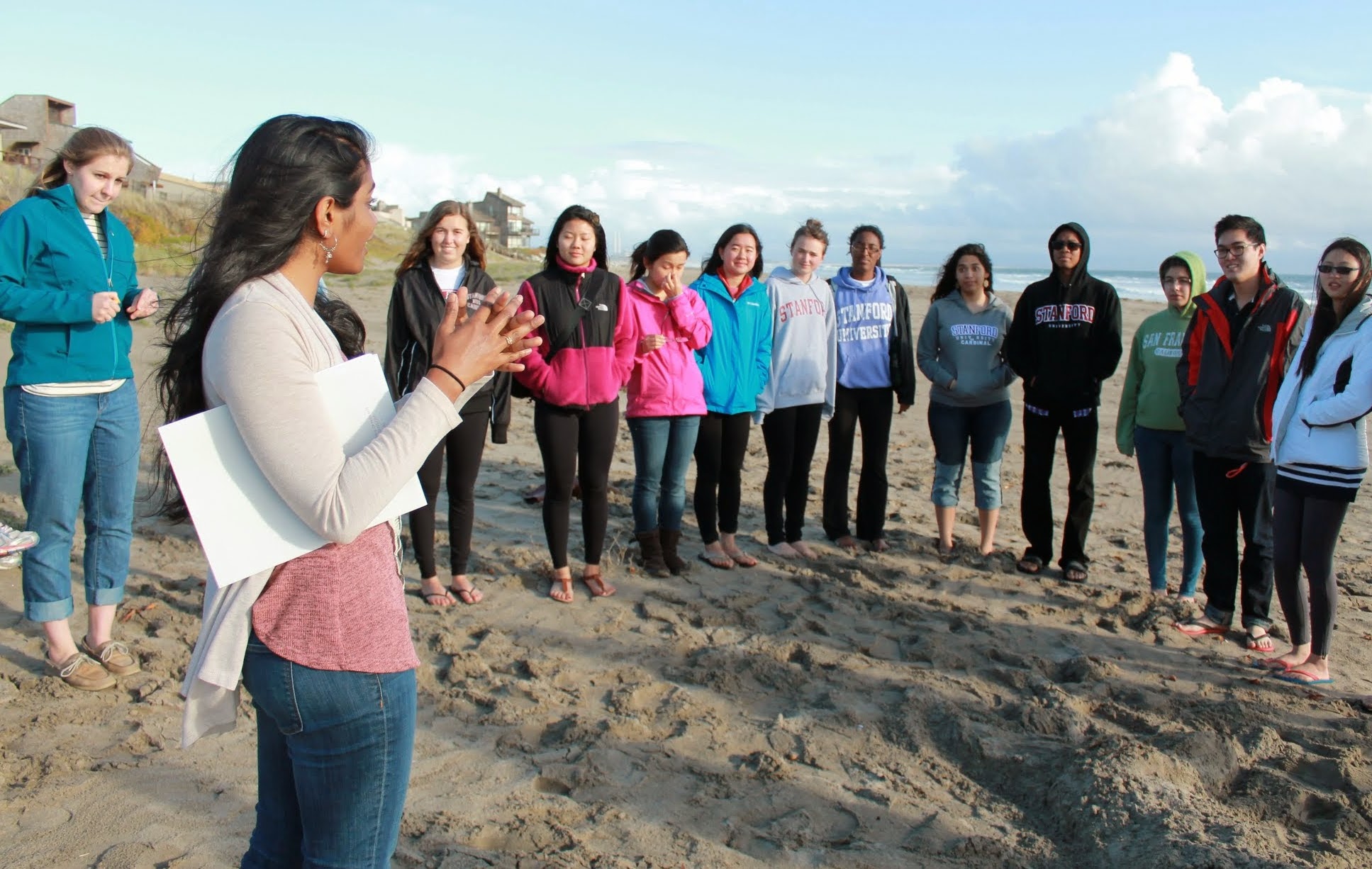
Anisha at the Haas Center's Emerging Leaders Retreat, 2014
By Anisha Mudaliar, ’15 (Economics)
In February of my freshman year, I had a chance to sit around a table with former Senator Russ Feingold and other students in Stanford in Government (SIG) to discuss the US’s responsibility to engage in sub-Saharan Africa. As former Chairman of the Senate Foreign Relations Committee on African Affairs, Senator Feingold shared with us the nuances and challenges of US policy in Africa as we delved into case studies ranging from diplomatic efforts to create an independent South Sudan to the use of military force in Uganda. Through this experience, among many others with SIG—including hearing from global leaders like Kofi Annan and Al Gore—I have had the opportunity to gain deeper insights into the role of policy as a tool to effect change at a large-scale level.
SIG has exposed me to the intricacies of the policy-making process, not only through discussion seminars and speaking events, but also through real-world applications of my learning through a SIG Fellowship with the Reserve Bank of India (RBI). SIG has established a range of fellowships in public service and policy around the world in institutions like RBI, the California Department of Education, NYC Economic Development Corporation, and UN High Commission on Refugees. At the core of these opportunities is the belief that individuals—and especially young individuals like ourselves—have the power to engage with policy and wrestle with some of our world’s toughest challenges. SIG has encouraged me to see the enormity of these challenges not as obstacles, but as opportunities—opportunities to learn, work, and serve alongside others to contribute to a more just and sustainable world.
By Sean Wang, ’15 (Biological Sciences)
When I first entered college, I had virtually no concept of “social entrepreneurship,” let alone its role as a pathway of public service. My interest in the topic arose from a fortuitous introduction to the “social-e” sphere through the Compass Fellows program and Social-E Capital, an early-stage social venture competition. Soon I began exploring how the technical aspects of science and engineering can be effectively leveraged for service.
Over time, several classmates and I have coordinated Stanford4Good, a conference on social entrepreneurship that convenes science and engineering undergraduates with young Stanford alumni working in social impact. We also partnered with the Career Development Center to recruit more tech-oriented organizations to the Social Impact Career Fair. Multiple attendees at these two events have expressed their excitement around “technology with purpose” – a notion I hope will become the norm as more students gain STEM backgrounds. Now, after co-leading a Thanksgiving Back service-trip on the topic in the Bay Area, I am confident that the popularity of social entrepreneurship on campus will continue to grow. I hope we may disrupt the traditional career mind-set of many STEM majors and encourage them to consider working in the social sector – an area in which their perspectives and skill sets potentially have much to contribute. I look forward to witnessing the social innovations that students at Stanford will dream up!
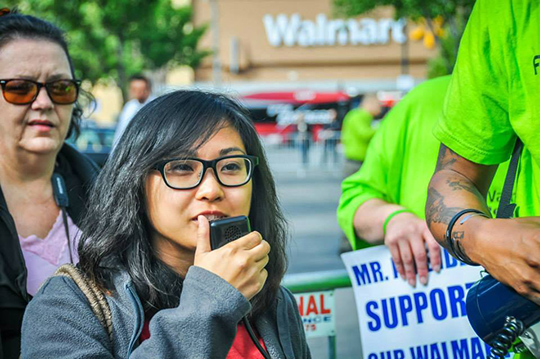
Katherine Nasol rallying in Washington, D.C.
By Katherine Nasol, ’15 (International Relations)
“I am more than a slave.” A year ago, I spoke with a Filipina teacher who was trafficked to work in a small private day care near Washington DC. She and many others were illegally recruited from the Philippines, coerced to live in cramped quarters, and trapped in a cycle of debt bondage. She said these exact words to describe her current experience in the US.
Her story is not uncommon, as many migrant workers have left because of inequality and lack of employment in their home countries. When many migrants come to their destination, they are met with discriminatory laws that abuse and exploit them and their families. Although this phenomenon is happening globally, there are also many migrant workers who are speaking up and mobilizing against oppressive policies and conditions. I have had the privilege to learn and work with migrant community organizers both here in my home in the Bay Area and internationally. By organizing with grassroots groups and seeing them push for change day by day, I have learned that justice can only be achieved by those who are affected themselves.
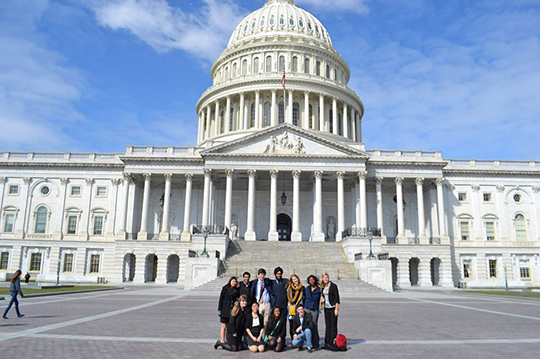
Lobbying for international human rights in Washington, D.C., 2013
By Jared Naimark, ’14 (Earth Systems)
In 2013, I led an Alternative Spring Break (ASB) trip to Washington D.C. After teaching a 10-week course to 12 fellow undergraduates on international human rights advocacy with my co-leader Emily Witt, we set off for a week-long exploration of our nation’s capital. We met with eight different nonprofit advocacy organizations and one government agency and engaged their staff in provocative discussions centered around the question: How can we get more people to care about international human rights and take action without oversimplifying the causes of or solutions to violent conflict?
With these discussions in mind, our group set off for Capitol Hill. We were nervous and tired, and most of us had never been in a lobby meeting before. But we put on our best clothes, reviewed our notes, and stepped into the congressional offices with confidence. We asked for the US to cut military aid to Rwanda which had been supporting abusive insurgent groups in Eastern Congo, and also asked for human rights benchmarks to be met before the US resumed military to military relations with Burma’s armed forces. After these lobby meetings, our trip was over, but our group’s commitment to transforming human rights advocacy was just beginning. Empowered by the notion that elected officials would actually care what a group of college students thought about human rights, our group was inspired to take what we learned on our trip and apply it to a diverse range of public service causes and pathways.






